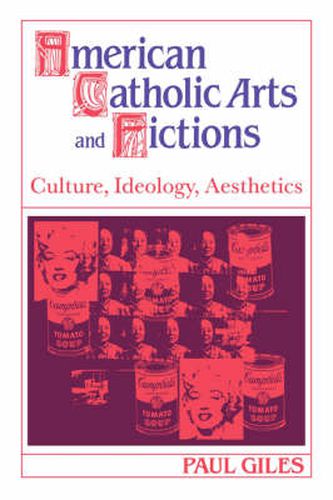Readings Newsletter
Become a Readings Member to make your shopping experience even easier.
Sign in or sign up for free!
You’re not far away from qualifying for FREE standard shipping within Australia
You’ve qualified for FREE standard shipping within Australia
The cart is loading…






Paul Giles describes how secular transformations of religious ideas have helped to shape the style and substance of works by American writers, filmmakers and artists from Catholic backgrounds such as Orestes Brownson, Theodore Dreiser, Mary McCarthy, Robert Mapplethorpe, Alfred Hitchcock and Robert Altman. The book also explores how Catholicism was represented and mythologized by other American writers. By highlighting the recurring themes and preoccupations of American Catholic fictions, Giles challenges many of the accepted ideas about the centrality of Romanticism to the American literary canon. He reconstructs the different social, historical, and philosophical contexts from which aesthetics in the Catholic tradition have emerged, and shows how these stand in an oblique relationship to the assumptions of the American Enlightenment.
$9.00 standard shipping within Australia
FREE standard shipping within Australia for orders over $100.00
Express & International shipping calculated at checkout
Paul Giles describes how secular transformations of religious ideas have helped to shape the style and substance of works by American writers, filmmakers and artists from Catholic backgrounds such as Orestes Brownson, Theodore Dreiser, Mary McCarthy, Robert Mapplethorpe, Alfred Hitchcock and Robert Altman. The book also explores how Catholicism was represented and mythologized by other American writers. By highlighting the recurring themes and preoccupations of American Catholic fictions, Giles challenges many of the accepted ideas about the centrality of Romanticism to the American literary canon. He reconstructs the different social, historical, and philosophical contexts from which aesthetics in the Catholic tradition have emerged, and shows how these stand in an oblique relationship to the assumptions of the American Enlightenment.